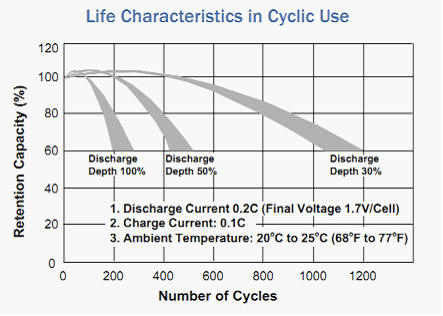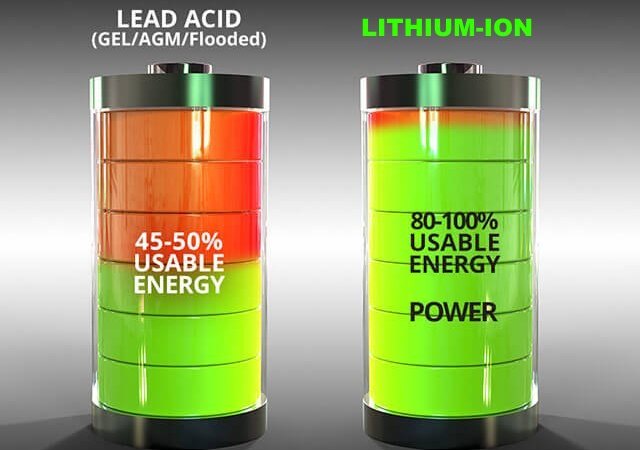Here is what I have found on the web and in buying & selling various battery storage solutions.
Lithium-ion has become the most popular chemistry for batteries and power storage applications around the world including electric vehicles to power supplies and storage.
Lead Acid batteries are the heaviest non-radioactive metal, was the previous standard for batteries.
Here are 7 features you should consider in a lithium battery conversion:
1) Weight:
Lithium-ion batteries are approximately one-third the weight of lead-acid batteries.
2) Efficiency:
Lithium-ion batteries are nearly 100% efficient in both charge and discharge, allowing for the same amp hours both in and out.
In lead-acid batteries, they will have a loss of approximately 15 amps while charging and rapid discharging drops voltage quickly and reduces the batteries’ capacity.
3) The depth of Discharge (DoD):
Lithium-ion batteries are discharged 100% versus less than 80% for lead acid.
Most lead acid batteries do not recommend more than 50% depth of discharge.
4) Cycle Life:
Rechargeable lithium-ion batteries cycle 5000 times or more compared to just 400-500 cycles in lead acid.


Cycle life is greatly affected by higher levels of discharge in lead-acid batteries versus a minimal for lithium-ion batteries.
5) Voltage:
Lithium-ion batteries maintain their voltage throughout the entire discharge cycle. This allows for greater and longer-lasting efficiency of electrical components.
Lead-acid voltage drops consistently throughout the discharge cycle.
6) Cost:
Despite the higher upfront cost of lithium-ion batteries, the true cost of ownership is far less than lead acid when considering life span and performance.
7) Environmental Impact:
Lithium-ion batteries are a much cleaner technology and are safer for the environment than Lead Acid batteries
Conclusion:
Overall Lithium batteries deliver higher-quality performance in a safer, longer-lasting package.
To learn more about Lithium-ion batteries, please visit Everspring.net

